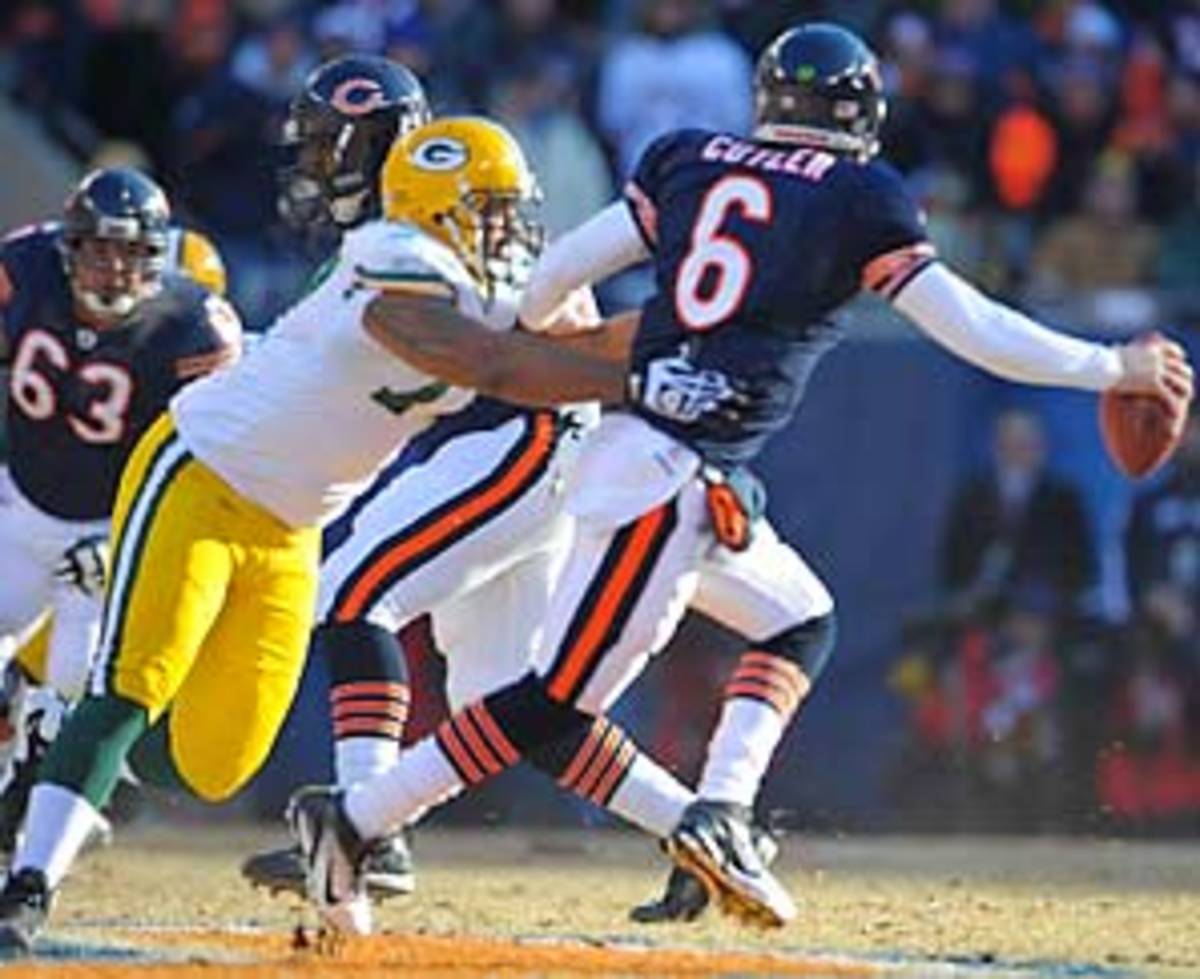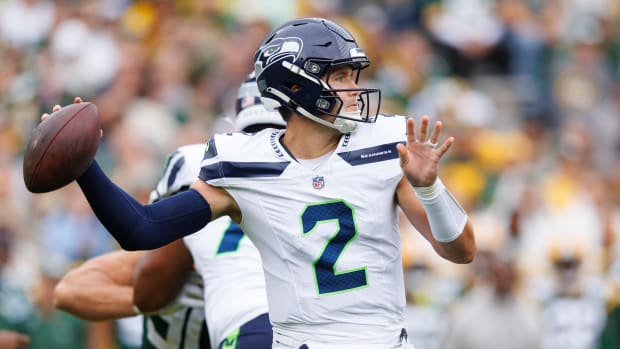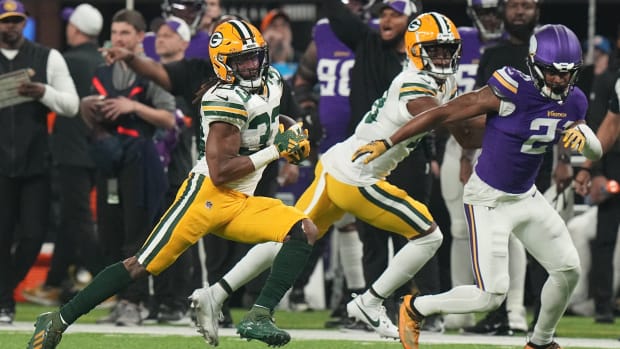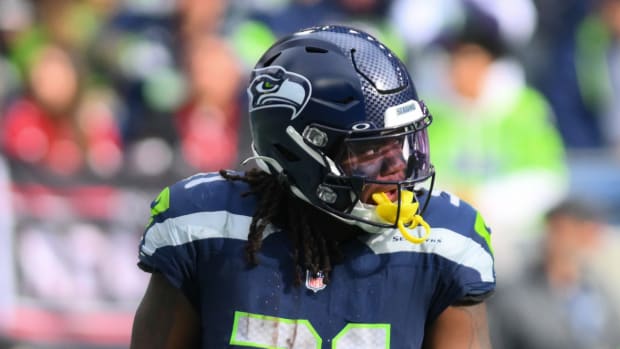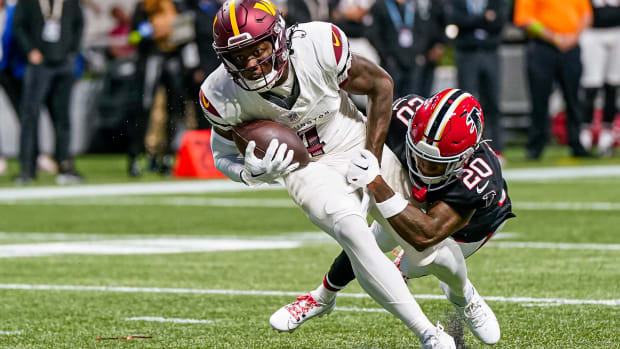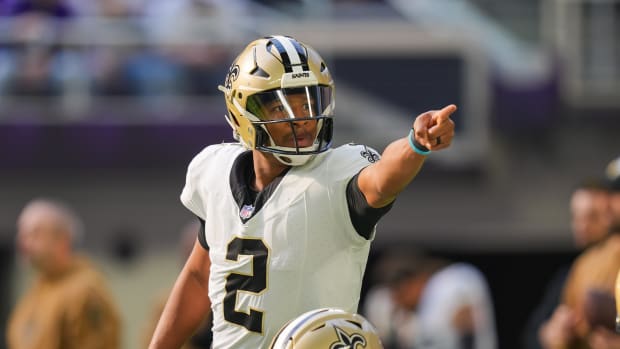NFL doing players a disservice by expanding Thursday night schedule
I'm sorry. I must have missed the NFL reversing field about player safety.
Isn't the league trying to show a newfound concern about concussions and illegal hits? Didn't commissioner Roger Goodell come down on the New Orleans Saints' notorious bounty program with more wrath than the Spanish Inquisition?
During last summer's contentious negotiations with the players' union, didn't the NFL finally back away from its ludicrous idea of an 18-game regular season?
So why in the name of Red Grange has the NFL scheduled 14 Thursday night games for the 2012 season? Longtime football fans may recall that the Chicago Bears and the newly signed Grange barnstormed the country after the 1925 NFL season, playing eight games in 12 days in the East and Midwest, another game on Christmas Day in Coral Gables, Fla., and then eight more games in 31 days in the South and West Coast.
Guess what? The quality of play wasn't too good, although it is said Grange made $125,000 from the tour and a then-pro football record crowd of 72,000 fans packed the Los Angeles Coliseum to see the Galloping Ghost.
So it is with Thursday night football, the NFL's worst idea since AstroTurf. Yes, it's popular. Last year's Thursday night games on the NFL Network averaged a network record-high of 7.3 million viewers. But the quality of Thursday night football is not all-pro. It can't be.
Even the most physically fit players need more than three days to recover from the bangs and bruises of the previous Sunday's games. Coaching staffs don't have the time to install imaginative game plans or rely on eclectic play-calling. Timing is off and play is not crisp.
Thursday night games often produce stinkers like the Nov. 12, 2009, matchup when the San Francisco 49ers">49ers edged the Chicago Bears 10-6, a game that featured more penalties (19) than points. Bears quarterback Jay Cutler threw five interceptions.
As an NFL season wears on, players need more rest and down time. Thursday night games don't provide that balm. It would make sense if both teams were coming off bye weeks but that won't be the case for any of the Thursday night games this season -- including the three on Thanksgiving.
Thursday night football is not new to the NFL. When the league schedule expanded to 16 games for the 1978 season, Commissioner Pete Rozelle approved a handful of Thursday night games, most of them early in the season before injuries took a toll on players' bodies.
Eventually, Thursday night games fell out of favor but not before a game in Houston ended a dynasty. By the 1980 season, the four-time Super Bowl champion Pittsburgh Steelers were starting to show their age. They were a banged-up team when they arrived at the Astrodome to play the Oilers on a Thursday night in Week 14, with the winner almost certain to make the playoffs. The Steelers had eliminated Houston from the playoffs the two previous years, and the Oilers and the Astrodome crowd were out for blood. The Oilers (11 penalties) were not beyond taking a few cheap shots in this most primal of games.
The Steelers turned the ball over five times, including a killer Terry Bradshaw interception when Pittsburgh had a first-and-goal from the Oilers' 1 in the second half. The Oilers won 6-0 and the Steelers dynasty was over.
Would a better-rested Pittsburgh team have won had the game been played on the following Sunday? It's possible. Certainly, the out-of-sync Steelers could not have played any worse than on that Thursday night in Houston.
It's hard to say if this game turned off NFL officials to Thursday night football, but for the rest of the '80s and through the '90s, Thursday night games were few and far between.
But like Sauron's ring reappearing to threaten Middle Earth in Lord of the Rings, Thursday night football rose from the grave in 2006, when the NFL's new television contract assigned the games to the newly minted NFL Network. The package originally included only five Thursday night games plus three games on Saturday nights. Since that time, however, the Saturday games, which were once a staple of the late-season NFL schedule, have all but disappeared and the Thursday night games have increased.
Why would the NFL showcase games on national television when the brand of play is not the best? Because fans eat it up. If the TV ratings were bad, Thursday night football again would be banished to the sidelines.
Shouldn't players' health be a concern? Don't they deserve a full week's rest rather than be treated as props for a TV production that pleases viewers at the expense of health and quality of play. These are not gladiators hired for the amusement of emperors.
Thursday night football makes the NFL become even more of a game for fans at home with less concern for the players on the field and the fans in the stadium.
At one time, the NFL seldom scheduled outdoor night football games in Northern cities after mid-November. Rozelle, who often sat with fans in the open, wanted the best conditions for both players and paying customers. Late-November or December night games in frigid climes were a no-no.
That attitude changed when Paul Tagliabue took over as commissioner. If a late-season game had the chance to draw a larger TV audience at night, even if the forecast called for near zero in Green Bay, Chicago or Foxboro, Mass., Tagliabue was all for it. Playoff games used to be scheduled with the cold-weather host getting the early afternoon time slot. No more.
The 2012 schedule has December night games in Green Bay, Foxboro, Philadelphia and the New Jersey Meadowlands. If Goodell is on hand, he'll probably be sitting in a luxury suite and not freezing in the open air.
Do Thursday night or Frost Belt December night games improve the NFL brand? Not really. But they provide good ratings for the league's TV partners and advertisers.
The NFL does have options. It could cut back on Thursday night contests and schedule more December Saturday games at it did for decades. The league could ensure that all teams in Thursday night games are coming off bye weeks. Or instead of Thursday night games, there could be games on Tuesday nights, giving players and coaches one more day of rest and preparation before the following Sunday.
One of my first newspaper jobs was covering high school football in Westchester County, north of New York City. In 1975, Bronxville, a small-enrollment school, appeared to have one of its best teams in years. The Broncos started 4-0, recalling memories of the school's powerhouse squads of the 1960s.
But that fall was a wet one in the New York City area. This was long before high school teams had Pro-Turf fields that could absorb moisture, and any decent downpour often drowned a grass field. Many games scheduled for a Saturday had to be postponed to the following Monday.
Coming off a Monday win that made it 4-0, Bronxville had only five days to prepare for the one large-enrollment school on its schedule, Gorton High of Yonkers. The combination of another wet field, a physical Gorton team and the lack of a full week's rest ended Bronxville's unbeaten season. The battered Broncos won just one more game.
Why mention a long-ago high school season? Because one of Bronxville's best players was a two-way performer named Roger Goodell. You would think the commissioner would remember the importance of rest and preparation in playing top-level football.
































